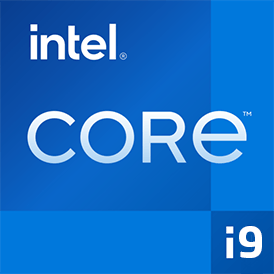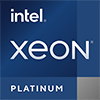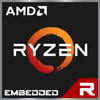
Intel Core i9-9880H Benchmark, Test and specs
Last updated:
The Intel Core i9-9880H is a 8 core processor. It can handle 16 threads simultaneously and was introduced in Q2/2019. The Intel Core i9-9880H is based on the 9. generation of the Intel Core i9 series and requires a mainboard with the socket BGA 1440. The Intel Core i9-9880H scores 1,127 points with one CPU core in the Geekbench 5 benchmark. When using all CPU cores, the result is 6,114 points.

| Name: | Intel Core i9-9880H |
|---|---|
| Family: | Intel Core i9 (78) |
| CPU group: | Intel Core i 9000H (11) |
| Architecture: | Coffee Lake H Refresh |
| Segment: | Mobile |
| Generation: | 9 |
| Predecessor: | -- |
| Successor: | -- |
CPU Cores and Base Frequency
The 8 CPU cores of the Intel Core i9-9880H clock with 2.30 GHz (4.80 GHz). The number of CPU cores and the clock frequency of the processor are largely responsible for the overall performance.
| CPU Cores / Threads: | 8 / 16 |
|---|---|
| Core architecture: | normal |
| Cores: | 8x |
| Hyperthreading / SMT: | Yes |
|---|---|
| Overclocking: | No |
| Frequency: | 2.30 GHz |
| Turbo Frequency (1 Core): | 4.80 GHz |
| Turbo Frequency (8 Cores): | 3.40 GHz |
Internal Graphics
With the Intel UHD Graphics 630, the Intel Core i9-9880H has an build in graphic solution. It has 24 SM processors, which have a total of 192 texture shaders. The iGPU not only enables games, but also significantly accelerates video playback.
| GPU name: | Intel UHD Graphics 630 |
|---|---|
| GPU frequency: | 0.35 GHz |
| GPU (Turbo): | 1.20 GHz |
| Compute units: | 24 |
| Shader: | 192 |
| Hardware Raytracing: | No |
| Release date: | Q4/2017 |
| Max. displays: | 3 |
|---|---|
| Generation: | 9.5 |
| Direct X: | 12 |
| Technology: | 14 nm |
| Max. GPU Memory: | 64 GB |
| Frame Generation: | No |
Hardware codec support
Processors that have an integrated graphics can play videos faster and more efficiently. This can have a positive effect on the battery life of notebooks, for example.
| h265 / HEVC (8 bit): | Decode / Encode |
|---|---|
| h265 / HEVC (10 bit): | Decode / Encode |
| h264: | Decode / Encode |
| VP8: | Decode / Encode |
| VP9: | Decode / Encode |
| AV1: | No |
|---|---|
| AVC: | Decode / Encode |
| VC-1: | Decode |
| JPEG: | Decode / Encode |
Memory & PCIeThe Intel Core i9-9880H supports up to 128 GB memory in up to 2 (Dual Channel) memory channels. This results in a maximum memory bandwidth of 42.7 GB/s. |
|
| Memory type: | Memory bandwidth: |
|---|---|
| LPDDR3-2133 DDR4-2666 | 34.2 GB/s 42.7 GB/s |
| Max. Memory: | 128 GB |
| Memory channels: | 2 (Dual Channel) |
| ECC: | No |
| PCIe: | 3.0 x 16 |
| PCIe Bandwidth: | 15.8 GB/s |
Thermal ManagementWith the TDP, the processor manufacturer specifies the cooling solution required for the processor. The Intel Core i9-9880H has a TDP of 45 W. |
|
|---|---|
| TDP (PL1 / PBP): | 45 W |
| TDP (PL2): | -- |
| TDP up: | -- |
| TDP down: | 35 W |
| Tjunction max.: | 100 °C |
Technical details
The Intel Core i9-9880H has a 16.00 MB large cache. The processor is manufactured in 14 nm. Modern production increases the efficiency of the processor.
| Technology: | 14 nm |
|---|---|
| Chip design: | Monolithic |
| Socket: | BGA 1440 |
| L2-Cache: | -- |
| L3-Cache: | 16.00 MB |
| AES-NI: | Yes |
| Operating systems: | Windows 10, Windows 11, Linux |
| Virtualization: | VT-x, VT-x EPT, VT-d |
|---|---|
| Instruction set (ISA): | x86-64 (64 bit) |
| ISA extensions: | SSE4.1, SSE4.2, AVX2 |
| Release date: | Q2/2019 |
| Release price: | 550 $ |
| Part Number: | -- |
| Documents: | Technical data sheet |
Rate this processor
Benchmark results

The benchmark results for the Intel Core i9-9880H have been carefully checked by us. We only publish benchmark results that have been created by us or that have been submitted by a visitor and then checked by a team member. All results are based on and fullfill our benchmark guidelines.
Cinebench 2024 (Single-Core)
The Cinebench 2024 benchmark is based on the Redshift rendering engine, which is also used in Maxon's 3D program Cinema 4D. The benchmark runs are each 10 minutes long to test whether the processor is limited by its heat generation.

|
AMD Ryzen 5 4600H
6C 12T @ 4.00 GHz |
||

|
Intel Core i7-5775R
4C 8T @ 3.80 GHz |
||

|
Intel Core i9-9980HK
8C 16T @ 5.00 GHz |
||
|
|
Intel Core i9-9880H
8C 16T @ 4.80 GHz |
||

|
AMD Ryzen 5 PRO 5650U
6C 12T @ 4.20 GHz |
||

|
Intel Core i7-1185G7
4C 8T @ 4.80 GHz |
||

|
Intel Core i9-10920X
12C 24T @ 4.80 GHz |
||
Cinebench 2024 (Multi-Core)
The Multi-Core test of the Cinebench 2024 benchmark uses all cpu cores to render using the Redshift rendering engine, which is also used in Maxons Cinema 4D. The benchmark run is 10 minutes long to test whether the processor is limited by its heat generation.

|
Intel Core i7-5960X
8C 16T @ 3.50 GHz |
||

|
AMD Ryzen 7 7730U
8C 16T @ 4.50 GHz |
||

|
AMD Ryzen 7 PRO 7730U
8C 16T @ 4.50 GHz |
||
|
|
Intel Core i9-9880H
8C 16T @ 4.80 GHz |
||

|
Intel Core i5-10600KF
6C 12T @ 4.80 GHz |
||

|
Intel Core i5-10600K
6C 12T @ 4.80 GHz |
||

|
AMD Ryzen 5 4600HS
6C 12T @ 4.00 GHz |
||
Cinebench R23 (Single-Core)
Cinebench R23 is the successor of Cinebench R20 and is also based on the Cinema 4 Suite. Cinema 4 is a worldwide used software to create 3D forms. The single-core test only uses one CPU core, the amount of cores or hyperthreading ability doesn't count.

|
Intel Core i3-10105
4C 8T @ 4.40 GHz |
||

|
Intel Core i3-10105F
4C 8T @ 4.40 GHz |
||

|
AMD Ryzen 5 5500U
6C 12T @ 4.00 GHz |
||
|
|
Intel Core i9-9880H
8C 16T @ 4.80 GHz |
||

|
AMD Ryzen 3 PRO 4350GE
4C 8T @ 4.00 GHz |
||

|
AMD Ryzen 3 PRO 4350G
4C 8T @ 4.00 GHz |
||

|
AMD Ryzen 5 4600U
6C 12T @ 4.00 GHz |
||
Cinebench R23 (Multi-Core)
Cinebench R23 is the successor of Cinebench R20 and is also based on the Cinema 4 Suite. Cinema 4 is a worldwide used software to create 3D forms. The multi-core test involves all CPU cores and taks a big advantage of hyperthreading.

|
AMD Ryzen 7 1700X
8C 16T @ 3.60 GHz |
||

|
AMD Ryzen 7 PRO 1700X
8C 16T @ 3.60 GHz |
||

|
AMD Ryzen 5 4600HS
6C 12T @ 4.00 GHz |
||
|
|
Intel Core i9-9880H
8C 16T @ 3.40 GHz |
||

|
Apple M2 (8-GPU)
8C 8T @ 3.50 GHz |
||

|
Apple M2
8C 8T @ 3.50 GHz |
||

|
Intel Core i7-9700F
8C 8T @ 3.80 GHz |
||
Geekbench 5, 64bit (Single-Core)
Geekbench 5 is a cross plattform benchmark that heavily uses the systems memory. A fast memory will push the result a lot. The single-core test only uses one CPU core, the amount of cores or hyperthreading ability doesn't count.

|
Intel Xeon E3-1230 v5
4C 8T @ 3.80 GHz |
||

|
Intel Xeon Platinum 8260Y
24C 48T @ 3.90 GHz |
||

|
Intel Xeon Platinum 8280L
28C 56T @ 4.00 GHz |
||
|
|
Intel Core i9-9880H
8C 16T @ 4.80 GHz |
||

|
Intel Xeon Gold 6246R
16C 32T @ 4.10 GHz |
||

|
Intel Core i7-8665U
4C 8T @ 4.80 GHz |
||

|
Intel Core i3-1005G1
2C 4T @ 3.40 GHz |
||
Geekbench 5, 64bit (Multi-Core)
Geekbench 5 is a cross plattform benchmark that heavily uses the systems memory. A fast memory will push the result a lot. The multi-core test involves all CPU cores and taks a big advantage of hyperthreading.

|
Intel Xeon E5-2630L v4
10C 20T @ 2.20 GHz |
||

|
Intel Core i3-12300T
4C 8T @ 3.20 GHz |
||

|
Intel Core i7-9700E
8C 8T @ 2.60 GHz |
||
|
|
Intel Core i9-9880H
8C 16T @ 3.40 GHz |
||

|
Intel Core i7-1185G7
4C 8T @ 4.30 GHz |
||

|
AMD Ryzen 5 PRO 4650GE
6C 12T @ 3.80 GHz |
||

|
Intel Xeon E-2226G
6C 6T @ 3.90 GHz |
||
Geekbench 6 (Single-Core)
Geekbench 6 is a benchmark for modern computers, notebooks and smartphones. What is new is an optimized utilization of newer CPU architectures, e.g. based on the big.LITTLE concept and combining CPU cores of different sizes. The single-core benchmark only evaluates the performance of the fastest CPU core, the number of CPU cores in a processor is irrelevant here.

|
Intel Core i5-9500
6C 6T @ 4.40 GHz |
||

|
Google Tensor G2
8C 8T @ 2.85 GHz |
||

|
Intel Core i3-8350K
4C 4T @ 4.00 GHz |
||
|
|
Intel Core i9-9880H
8C 16T @ 4.80 GHz |
||

|
Intel Xeon W-2135
6C 12T @ 4.50 GHz |
||

|
Intel Xeon W-2195
18C 36T @ 4.30 GHz |
||

|
Intel Core i7-8850H
6C 12T @ 4.30 GHz |
||
Geekbench 6 (Multi-Core)
Geekbench 6 is a benchmark for modern computers, notebooks and smartphones. What is new is an optimized utilization of newer CPU architectures, e.g. based on the big.LITTLE concept and combining CPU cores of different sizes. The multi-core benchmark evaluates the performance of all of the processor's CPU cores. Virtual thread improvements such as AMD SMT or Intel's Hyper-Threading have a positive impact on the benchmark result.

|
Intel Xeon W-2133
6C 12T @ 3.90 GHz |
||

|
Intel Core i7-11600H
6C 12T @ 2.50 GHz |
||

|
Intel Xeon D-2796TE
20C 40T @ 2.50 GHz |
||
|
|
Intel Core i9-9880H
8C 16T @ 3.40 GHz |
||

|
Intel Core i5-11600T
6C 12T @ 3.50 GHz |
||

|
Intel Core i5-1235U
10C 12T @ 2.50 GHz |
||

|
Intel Xeon E5-2683 v3
14C 28T @ 2.50 GHz |
||
Cinebench R20 (Single-Core)
Cinebench R20 is the successor of Cinebench R15 and is also based on the Cinema 4 Suite. Cinema 4 is a worldwide used software to create 3D forms. The single-core test only uses one CPU core, the amount of cores or hyperthreading ability doesn't count.

|
AMD Ryzen 5 4500U
6C 6T @ 4.00 GHz |
||

|
AMD Ryzen 5 4600U
6C 12T @ 4.00 GHz |
||

|
Intel Core i7-1065G7
4C 8T @ 3.90 GHz |
||
|
|
Intel Core i9-9880H
8C 16T @ 4.80 GHz |
||

|
Intel Core i3-8350K
4C 4T @ 4.00 GHz |
||

|
AMD EPYC 7F32
8C 16T @ 3.90 GHz |
||

|
AMD EPYC 7F52
16C 32T @ 3.90 GHz |
||
Cinebench R20 (Multi-Core)
Cinebench R20 is the successor of Cinebench R15 and is also based on the Cinema 4 Suite. Cinema 4 is a worldwide used software to create 3D forms. The multi-core test involves all CPU cores and taks a big advantage of hyperthreading.

|
Intel Core i9-9980HK
8C 16T @ 3.40 GHz |
||

|
Intel Xeon Gold 5115
10C 20T @ 2.60 GHz |
||

|
Intel Core i5-1335U
10C 12T @ 1.30 GHz |
||
|
|
Intel Core i9-9880H
8C 16T @ 3.40 GHz |
||

|
Intel Core i7-10870H
8C 16T @ 3.10 GHz |
||

|
Intel Core i5-10505
6C 12T @ 3.20 GHz |
||

|
AMD Ryzen 7 2700
8C 16T @ 3.60 GHz |
||
iGPU - FP32 Performance (Single-precision GFLOPS)
The theoretical computing performance of the internal graphics unit of the processor with simple accuracy (32 bit) in GFLOPS. GFLOPS indicates how many billion floating point operations the iGPU can perform per second.

|
AMD A8-3800
AMD Radeon HD 6550D @ 0.60 GHz |
||

|
Qualcomm Snapdragon 820
Qualcomm Adreno 530 @ 0.62 GHz |
||

|
Qualcomm Snapdragon 821
Qualcomm Adreno 530 @ 0.62 GHz |
||
|
|
Intel Core i9-9880H
Intel UHD Graphics 630 @ 1.20 GHz |
||

|
Intel Core i9-10880H
Intel UHD Graphics 630 @ 1.20 GHz |
||

|
AMD Ryzen Embedded R2312
AMD Radeon RX Vega 3 (Raven Ridge) @ 1.20 GHz |
||

|
AMD Ryzen 3 5125C
AMD Radeon RX Vega 3 (Raven Ridge) @ 1.20 GHz |
||
Blender 3.1 Benchmark
In the Blender Benchmark 3.1, the scenes "monster", "junkshop" and "classroom" are rendered and the time required by the system is measured. In our benchmark we test the CPU and not the graphics card. Blender 3.1 was presented as a standalone version in March 2022.

|
Intel Core i7-9700K
8C 8T @ 4.60 GHz |
||

|
Intel Core i7-9700KF
8C 8T @ 4.60 GHz |
||

|
Intel Core i9-10980HK
8C 16T @ 3.40 GHz |
||
|
|
Intel Core i9-9880H
8C 16T @ 3.40 GHz |
||

|
Intel Core i7-12700HL
14C 20T @ 3.80 GHz |
||

|
Intel Core i7-12700H
14C 20T @ 3.80 GHz |
||

|
Intel Core i5-11500
6C 12T @ 3.70 GHz |
||
Estimated results for PassMark CPU Mark
Some of the CPUs listed below have been benchmarked by CPU-monkey. However the majority of CPUs have not been tested and the results have been estimated by a CPU-monkey’s secret proprietary formula. As such they do not accurately reflect the actual Passmark CPU mark values and are not endorsed by PassMark Software Pty Ltd.

|
Intel Xeon E5-2650 v4
12C 24T @ 2.50 GHz |
||

|
AMD EPYC Embedded 3251
8C 16T @ 2.50 GHz |
||

|
AMD Ryzen 5 2600X
6C 12T @ 4.00 GHz |
||
|
|
Intel Core i9-9880H
8C 16T @ 3.40 GHz |
||

|
Intel Xeon E5-2667 v4
8C 16T @ 3.40 GHz |
||

|
Intel Xeon Silver 4210
10C 20T @ 2.40 GHz |
||

|
Intel Xeon E5-1660 v2
6C 12T @ 3.80 GHz |
||
Blender 2.81 (bmw27)
Blender is a free 3D graphics software for rendering (creating) 3D bodies, which can also be textured and animated in the software. The Blender benchmark creates predefined scenes and measures the time (s) required for the entire scene. The shorter the time required, the better. We selected bmw27 as the benchmark scene.

|
AMD Ryzen 7 1700
8C 16T @ 3.30 GHz |
||

|
AMD Ryzen 5 3600
6C 12T @ 4.00 GHz |
||

|
AMD Ryzen 7 1800X
8C 16T @ 3.80 GHz |
||
|
|
Intel Core i9-9880H
8C 16T @ 3.40 GHz |
||

|
Intel Core i9-9980HK
8C 16T @ 3.40 GHz |
||

|
Intel Core i7-5960X
8C 16T @ 3.20 GHz |
||

|
Apple M2
8C 8T @ 3.50 GHz |
||
CPU-Z Benchmark 17 (Multi-Core)
The CPU-Z benchmark measures a processor's performance by measuring the time it takes the system to complete all benchmark calculations. The faster the benchmark is completed, the higher the score.

|
AMD Ryzen 7 PRO 1700
8C 16T @ 3.00 GHz |
||

|
AMD Ryzen 7 4800U
8C 16T @ 1.80 GHz |
||

|
Intel Core i7-9700F
8C 8T @ 3.00 GHz |
||
|
|
Intel Core i9-9880H
8C 16T @ 2.30 GHz |
||

|
Intel Core i7-8086K
6C 12T @ 4.00 GHz |
||

|
AMD Ryzen 7 PRO 5850U
8C 16T @ 1.90 GHz |
||

|
AMD Ryzen 5 5600H
6C 12T @ 3.30 GHz |
||
Cinebench R15 (Single-Core)
Cinebench R15 is the successor of Cinebench 11.5 and is also based on the Cinema 4 Suite. Cinema 4 is a worldwide used software to create 3D forms. The single-core test only uses one CPU core, the amount of cores or hyperthreading ability doesn't count.

|
Intel Xeon E5-1680 v3
8C 16T @ 3.80 GHz |
||

|
Intel Xeon W-2155
10C 20T @ 4.50 GHz |
||

|
Intel Core i7-9850H
6C 12T @ 4.60 GHz |
||
|
|
Intel Core i9-9880H
8C 16T @ 4.80 GHz |
||

|
Intel Core i3-10105F
4C 8T @ 4.40 GHz |
||

|
Intel Core i3-10100F
4C 8T @ 4.30 GHz |
||

|
AMD Ryzen 5 PRO 4650G
6C 12T @ 4.30 GHz |
||
Cinebench R15 (Multi-Core)
Cinebench R15 is the successor of Cinebench 11.5 and is also based on the Cinema 4 Suite. Cinema 4 is a worldwide used software to create 3D forms. The multi-core test involves all CPU cores and taks a big advantage of hyperthreading.

|
Intel Xeon Gold 6134M
8C 16T @ 3.50 GHz |
||

|
Intel Xeon E5-2697 v2
12C 24T @ 3.10 GHz |
||

|
AMD Ryzen 5 PRO 6650U
6C 12T @ 3.80 GHz |
||
|
|
Intel Core i9-9880H
8C 16T @ 3.40 GHz |
||

|
AMD Ryzen 7 PRO 1700X
8C 16T @ 3.60 GHz |
||

|
AMD Ryzen 7 1700X
8C 16T @ 3.60 GHz |
||

|
AMD Ryzen 7 2700
8C 16T @ 3.60 GHz |
||
Benchmarks

Cinebench 2024 (SC)
272 entries
272 entries

Cinebench 2024 (MC)
271 entries
271 entries

Cinebench R23 (SC)
586 entries
586 entries

Cinebench R23 (MC)
565 entries
565 entries

Geekbench 5 (SC)
2,488 entries
2,488 entries

Geekbench 5 (MC)
2,461 entries
2,461 entries

Geekbench 6 (SC)
1,755 entries
1,755 entries

Geekbench 6 (MC)
1,703 entries
1,703 entries

Cinebench R20 (SC)
656 entries
656 entries

Cinebench R20 (MC)
604 entries
604 entries

FP32 SP (iGPU)
2,042 entries
2,042 entries

3DMark Timespy (iGPU)
516 entries
516 entries

Blender 3.1 Benchmark
212 entries
212 entries

PassMark CPU-Mark
2,392 entries
2,392 entries

Blender 2.81 (bmw27)
190 entries
190 entries

CPU-Z Benchmark 17 (MC)
733 entries
733 entries

Cinebench R15 (SC)
1,106 entries
1,106 entries

Cinebench R15 (MC)
1,101 entries
1,101 entries
Popular comparisons
back to index




